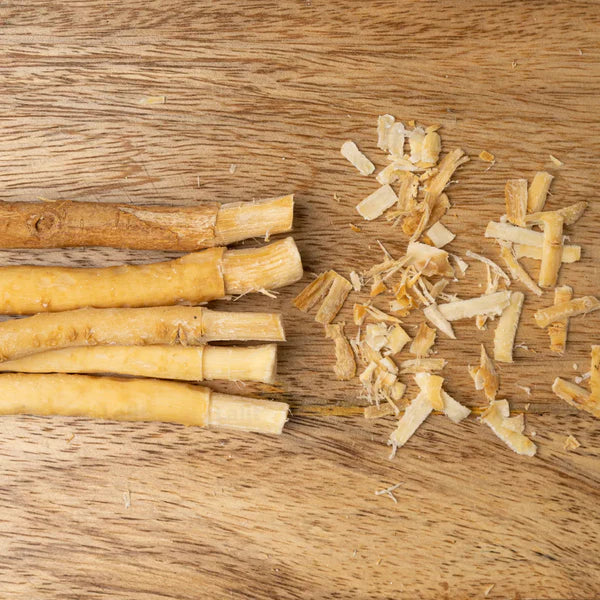
Miswak: The Prophetic Toothbrush
شیئر کریں۔
Introduction
The miswak, a natural teeth-cleaning stick derived from the roots or branches of the Salvadora persica tree (commonly known as the Arak tree), has been used for centuries, predating even the advent of Islam. It became deeply embedded in Islamic tradition due to the emphasis placed on its use by the Prophet Muhammad (ﷺ). The miswak is not merely a tool for oral hygiene but carries spiritual significance, making it a beloved Sunnah among Muslims worldwide.

Salvadora persica tree
Historical Background of the Miswak
Long before the invention of the modern toothbrush, ancient civilizations such as the Babylonians, Egyptians, and Greeks were known to use tooth-cleaning sticks. However, it was the Arabs who popularized the use of the miswak, particularly after the teachings of the Prophet Muhammad (ﷺ). In Islamic history, the miswak has been associated not only with cleanliness but also with piety, as the Prophet (ﷺ) made its usage a regular practice.
Authentic Hadiths on Miswak
The Prophet Muhammad (ﷺ) highly encouraged the use of the miswak, emphasizing its benefits for both physical health and spiritual reward. Below are some of the most authentic hadiths on the subject:
"لَوْلَا أَنْ أَشُقَّ عَلَى أُمَّتِي لَأَمَرْتُهُمْ بِالسِّوَاكِ مَعَ كُلِّ وُضُوءٍ"
Translation: "Were it not that it would be difficult on my Ummah, I would have commanded them to use the miswak for every prayer."
(Sahih Muslim, Book 2, Hadith 252)
"السِّوَاكُ مَطْهَرَةٌ لِلْفَمِ مَرْضَاةٌ لِلرَّبِّ"
Translation: "The miswak cleanses the mouth and pleases the Lord."
(Sahih al-Bukhari, Hadith 887)
Translation: "Were it not that it would be difficult on my Ummah, I would have commanded them to use the miswak for every prayer."
(Sahih Muslim, Book 2, Hadith 252)
"السِّوَاكُ مَطْهَرَةٌ لِلْفَمِ مَرْضَاةٌ لِلرَّبِّ"
Translation: "The miswak cleanses the mouth and pleases the Lord."
(Sahih al-Bukhari, Hadith 887)
"رَكْعَتَانِ بِسِوَاكٍ خَيْرٌ مِنْ سَبْعِينَ رَكْعَةً بِغَيْرِ سِوَاكٍ"
Translation: "A prayer performed after using the miswak is better than seventy prayers performed without using it."
(Sunan Ibn Majah, Hadith 289)
“The miswak increases intelligence, enhances memory, and improves vision.”
(ضعيف - Weak hadith)
These narrations reflect how beloved the practice of using the miswak was to the Prophet (ﷺ). It was reported that he used it upon waking, before prayers, and even when entering his home.
Scientific Benefits of Miswak
The benefits of using miswak extend beyond its religious significance, as modern science confirms its positive impact on oral health. Research has shown that miswak contains numerous bioactive compounds beneficial for dental hygiene:
Antibacterial Properties:
Studies have demonstrated that miswak contains antibacterial agents that inhibit the growth of oral pathogens like Streptococcus mutans, a bacteria responsible for tooth decay and gum disease. According to research published in the Journal of Dentistry, regular use of miswak can significantly reduce plaque formation.
Natural Teeth Whitening:
The silica found in miswak helps remove stains from the teeth, providing a natural whitening effect. The mechanical action of brushing with miswak also assists in plaque removal.
Strengthening of Gums:
Tannins present in miswak strengthen the gums, reduce bleeding, and decrease the risk of periodontal diseases. A study published in the Journal of Ethnopharmacology found that miswak users have healthier gums compared to those who use regular toothbrushes.
How to Use the Miswak According to the Sunnah
The Prophet Muhammad (ﷺ) not only encouraged the use of the miswak but also demonstrated how it should be used. Here’s a step-by-step guide to using miswak effectively:
Preparing the Miswak:
Trim approximately 1 cm off the end of the stick to expose fresh fibers.
Soak the tip in water for a few hours if it’s too hard, then chew on the tip lightly until it becomes soft and bristle-like.
Soak the tip in water for a few hours if it’s too hard, then chew on the tip lightly until it becomes soft and bristle-like.
How to Hold the Miswak:
The Prophet (ﷺ) recommended holding it in the right hand, using the thumb underneath and the rest of the fingers on top.
Brushing Technique:
Brush with a horizontal motion, gently covering all teeth surfaces and the gum line.
Focus on using the miswak before wudu (ablution), before entering the mosque, after waking up, and before sleeping.
Focus on using the miswak before wudu (ablution), before entering the mosque, after waking up, and before sleeping.
Care and Maintenance:
Trim the used bristles regularly to maintain hygiene.
Store in a clean, dry place and avoid exposing it to contaminants.
Store in a clean, dry place and avoid exposing it to contaminants.

What to Avoid: Signs of Low-Quality Miswak
- Dry and brittle texture: Miswak that feels overly hard or cracks easily is often too old or improperly stored, making it less effective and difficult to use.
- Foul or moldy smell: A bad odor is a clear sign that the miswak has gone bad, possibly due to poor storage or contamination.
- Artificial color or fragrance: Some suppliers might treat their miswak with dyes or chemicals to make them look fresher or more appealing, which defeats the natural benefits.
- Non-authentic sources: Miswak should ideally come from the Arak (Salvadora persica) tree for the best results. Sticks made from other trees may lack the medicinal benefits outlined in the Sunnah.
Why Our Miswak Stands Out
At Sunnah Goods, we prioritize quality over everything. Here’s why our miswak is the best choice:
- Freshly sourced and stored: Our miswak sticks are sourced directly from the authentic Arak tree and are stored in optimal conditions to ensure maximum freshness upon arrival.
- Comes with a convenient holder: Each miswak includes a protective holder to keep it clean and easy to carry, ensuring you get the most out of every use.
Discover the difference for yourself and start benefiting from this timeless Sunnah by trying our premium miswak here.